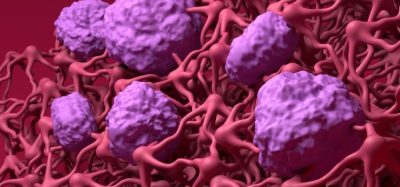Positive Phase I results for Pipe-307 treatment for MS
Posted: 15 March 2022 | European Pharmaceutical Review | No comments yet
Pipe-307 demonstrated linear pharmacokinetic (PK) data consistent with pre-clinical modelling and was generally well tolerated at all doses in 70 healthy adult volunteers.


Pipeline Therapeutics has reported positive clinical data from its recently completed Phase I clinical trial evaluating the safety and tolerability of Pipe-307 in healthy volunteers.
Pipe-307, the company’s lead programme for myelin restoration, is an oral, highly selective antagonist of the muscarinic M1 receptor that is being developed for the treatment of multiple sclerosis (MS). Currently, there are no approved medicines that support myelin restoration, which represents a significant unmet medical need in the treatment of MS.
The Phase I clinical results reported comprised multiple dose cohorts of Pipe-307 in a total of 70 healthy volunteer subjects. Pipe-307 demonstrated linear pharmacokinetic (PK) data consistent with pre-clinical modelling and was generally well tolerated across all dose cohorts. Importantly, analysis of a battery of neuropsychological measures, including tests involving psychomotor, attention, learning, and executive function, were administered in the Phase I study and showed no significant PK or dose related effects on cognitive function.
“We believe that Pipe-307, as a first-in-class myelin restoration therapeutic, represents a differentiated and clinically-validated approach for the treatment of MS,” commented Dr Stephen Huhn, Chief Medical Officer and Senior Vice President of Clinical Development of Pipeline. “The results of the single- and multiple-ascending dose cohorts from the completed study demonstrate a favourable safety and PK profile, and we are pleased to have met our primary and secondary endpoints in this study. These encouraging Phase I results give us great confidence to advance Pipe-307 into clinical studies with MS patients as soon as possible.”
Carmine Stengone, President and CEO of Pipeline, added, “Multiple sclerosis is a devastating neurodegenerative disease that impacts almost three million people worldwide, and therapies that are designed to restore neuronal damage, like Pipe-307, are desperately needed. Our clinical plans remain on track and we look forward to evaluating Pipe-307 in MS patients.”
The completed Phase I clinical trial of Pipe-307 was a randomised, double-blind, placebo-controlled trial in 70 healthy adult volunteers. The trial was conducted in three parts: (1) a Single Ascending Dose (SAD) study, (2) a Multiple Ascending Dose (MAD) study, and (3) a selected SAD cohort in a fed state to evaluate the effect of food on bioavailability of Pipe-307. The primary endpoint of the trial was to measure the safety and tolerability of Pipe-307, with a secondary endpoint measuring the effect of PIPE-307 on pharmacokinetics. This study was completed at a single centre in Australia.
Related topics
Clinical Development, Clinical Trials, Drug Development, Pharmacokinetics, Research & Development (R&D), Therapeutics









